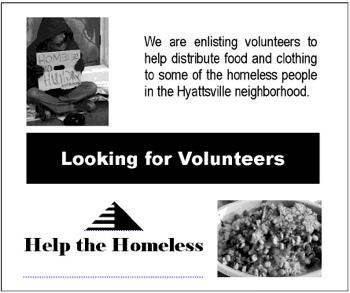Technology changes not only the medium in which we process information, but how we interpret and act on that information. The creation of cellphones was a seminal moment in the history of human communication. Barriers that were once impossible to cross are only a push of a button away. Cellphones satisfy a basic human impulse, “the need to belong.” By fulfilling that need to belong, though, some researchers show that people may be less inclined be charitable to others.

The term for an individual being charitable to others is “prosocial.” When we help out our community, give to a charity, volunteer our time, we are being prosocial. A study by researchers at the University of Maryland Robert H. Smith School of Business posits that cellphone use may be linked to less prosocial tendencies. Can it be true? By fulfilling our need to belong, do cellphones cause us to care less about our fellow human?

Method & Results
The study used three experiments to determine cellphone use on prosocial activity.
Experiment 1 examined prosocial thought after mobile phone use with a word puzzle task. There were three classes of words in the puzzle: “others-related” (theirs, themselves), “self-related” (mine, myself) and neutral (cello, heed). Participants were broken into two groups: cellphone and control. The cellphone group was asked to draw a picture of their phone and describe how they used it the previous day and the told to do the word puzzle. The control group just did the puzzle without the picture or description.
Right: Figure 1 from the study. “Study 2 advertisement. This figure depicts an advertisement by a fictitious charity looking for volunteers.”
The results were that participants in the cellphone group found less others-related words, at 6%. The control group found 13% of others-related words. There was no discernible difference between the two groups in self or neutral related words.
The next two experiments were similar to each other, each trying to validate the results of the first. Experiment 2 tested prosocial intentions against two groups: cellphones and Facebook. The theory was that people would satiate the need to belong more with a cellphone than on Facebook. In one phase, participants were asked to rate their moods after cellphone or Facebook use. The second phase asked them if they would volunteer for a “Help the Homeless” program. Overall, cellphone users were less likely to volunteer time than Facebook users.
Experiment 3 was similar to 1. Participants were broken into two groups: cellphones and television. They were asked to draw the device and describe their interaction with it. They were then asked to do a complicated word puzzle and told that for every answer they got right, one cent would be donated to the National Parks’ Conservation Association. Participants could break off and do a fun activity like browsing the Web at any time. They were then asked to rate their mood. Cellphone users spent less time on average on the puzzle (189 seconds) to television (220 seconds). The theory is that a TV does not fulfill the need to belong like a cellphone does, hence not inhibiting prosocial behavior.
All three experiments showed that cellphone use correlated towards less prosocial behavior. The first experiment had 98 participants, No. 2 had 197 and No. 3 had 117. Most were undergraduate students in their early 20s.
Changing Human Behavior
Ultimately, the study is trying to correlate the need to belong with cellphone usage then tying it to charitable behavior. It should be noted that the study is a “working paper” and hence has not been peer reviewed or substantiated by outside researchers.
“As technology is advancing at a very rapid pace, with devices such as smartphones, iPads and other communication devices becoming ubiquitous, the habitual and almost perpetual use of such ‘social’ devices might ironically lead people to become less, not more, prosocial over time,” the study states.
The researchers noted that there are areas that need further study. For instance, choosing a charity that a person feels more associated with. People may act more prosocial to something they are close to. For instance, I gave several dollars to a fundraiser for a local chef that has an aggressive form of cancer. I think about it and say, “that chef could have been me.” At the time that I donated the dollars, I was sitting at a pub reading an article on my iPad. The closeness of the situation struck me whereas I am less likely to care about a distant issue like the NPCA.
The barrier to entry for prosocial behavior may also be a matter of ease. The counterweight to this research was seen when millions of dollars were donated to Haiti and Japan through the Red Cross via SMS message. It is easy to donate money via a simple text and the magnitude of those disasters affected everybody in the world.
There is a chance that the researchers are correct. By fulfilling the need to belong, we care less about our fellow human. There is also a chance that the sample size is too small and narrow, focusing on college students in one part of the world. Yet, the fundamental principle remains intact: the psychological and sociological affect of new technology is as yet un-quantified. Technology is changing how we think, how we behave. As a species, are we evolving with our technology towards more perfect beings or are our devices holding us back?
Top image: Damage from Haiti earthquake courtesy Shutterstock

















